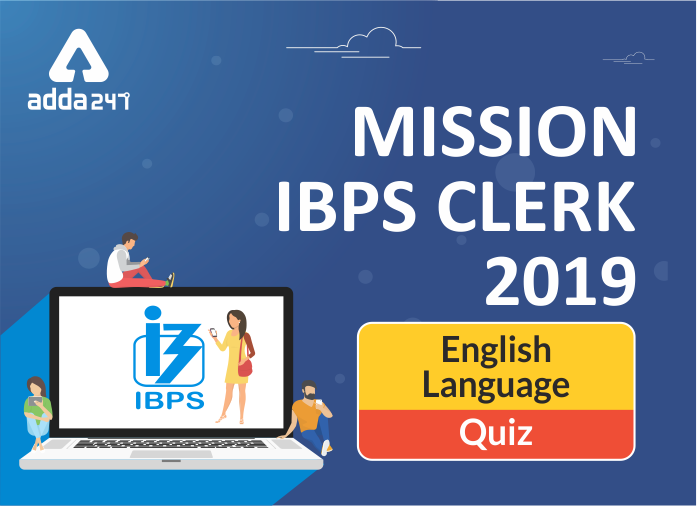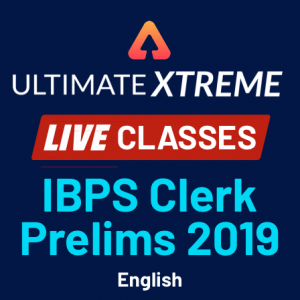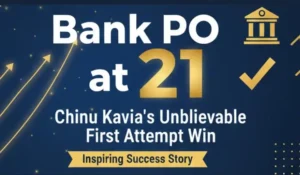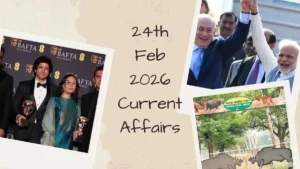IBPS Clerk Prelims English Quiz
The English language perplexes most of the students and makes one nervous during the examination even if the answer to the question is known. But there are no formulas to cramp or the longer the calculation to deal with. The mistakes that occur are because of the lack of confidence. With proper strategy, Study Notes, Quizzes, Vocabulary one can calm his/her nerves and excel in no time. Make the reading newspaper, editorial a habit, and also participate in the daily quiz. The IBPS Clerk 2019 is just one step away from your reach. Here is the quiz under the Study Plan ‘FATEH’, on the IBPS Clerk Prelims English Quiz and we have a English Misc for 23rd of November 2019. You can also check out the latest books for IBPS Clerk 2019 exam.
Direction (1-10): Read the following passage carefully and answer the questions given below it. Some words are given in bold to help you locate them while answering some of the questions.
The Patuas are an artisan community found in the state of West Bengal, Bihar, Jharkhand and Odisha in India and parts of Bangladesh. Some Patuas are Hindus, while others are Muslims. Hindu Patuas are active in the Kalighat and Kumartuli regions of Calcutta, along with some other parts of West Bengal, where they are reduced in number. It is believed that most Patuas are actually converts from Hinduism to Islam. Today, they practice customs that are both Hindu and Islamic in nature. They may have also been Buddhist at various points in time. Today, however, the majority of them are impoverished Muslims who rely on patronage from mainly Hindus, but also increasingly from tourists who buy their painted scrolls, as Frank J. Korom has described and analyses in his book Village of Painters: Narrative Scrolls from West Bengal (2006. Santa Fe: Museum of New Mexico Press). Scholars argue that the Patuas, originally Hindus, were cast out of the Hindu society for not following canonical proceedings in pursuing their trade. Patuas are also known Patigar or Chitrakar.
An intricate tapestry of music and visual art is what makes Naya more than just a village in West Bengal’s Paschim Midnapore district. A quaint little village, Naya is home to around 250 patuas or chitrakaars, a unique community of folk artistes who are painters, lyricists, singers and performers all rolled into one. These traditional painter singers specialize in the ancient folk art of pata chitra, a traditional and mythological heritage of West Bengal, divided into some different aspects like Durga Pat, Chalchitra, Tribal Patachitra, Medinipur Patachitra, Kalighat Patachitra and etc. The subject matter of Bengal Patachitra is mostly mythological, religious stories, folk lore and social. The Kalighat Patachitra, the last tradition of Bengal Patachitra is developed by Jamini Roy. The artist of the Bengal Patachitra is called Patua, a type of narrative scroll painting. Over time, however, interest in this art form faded out. To ensure that their art form remained relevant in the contemporary world, the patuas adapted their skills and themes to changing times. As a part of this effort, a group of innovative patuas established a patachitra village at Naya. Slowly, their efforts to revive their artistic heritage started paying off.
Today, after a period of decline, the patachitra art is flourishing again in the village, with village youngsters taking up the traditional art form as a passion and profession. A pata is created by painting on a canvas made by stitching together multiple sheets of commercial poster paper. In earlier days, jute fibre canvas was used. Plant-based colours and lamp black (a pigment made from soot) are mixed in coconut shells with the sap of the bel tree (wood apple), which acts as a binder. After finishing, a thin cotton cloth is glued to the back of the painting to provide longevity. Next, the completed scrolls are kept in the sun to dry. The patuas also paint wooden souvenirs, decorative hangings and mud walls with striking natural colours.
Although Chitrakars origin is difficult to be precisely determined, historical and mythological memories coincide that their existence is traceable to the 13th century. Different accounts explain their standing in the Indian caste system. The Patua are a unique community, in that their traditional occupation is the painting and modelling of Hindu idols, yet many of them are Muslims. Their name Patua is a corruption of the Bengali word Pota, which means an engraver. They are also widely known as Chitrakar, which literally means a scroll painter. The Patuas paid little attention to faith, while looking for patronage. Chitrakars themselves might have converted to Islam as a strategy to avoid the oppression by a hierarchy of subcastes created during the Sen Dynasty. This was an extremely slow process with the Patuas, as seen by the fact that every Patua has two names, one Hindu and one Muslim.
The Patua are found mainly in the districts of Murshidabad, In Bihar they are mainly found in the Magahi and Maithili speaking regions as well as in the adjoining regions of Jharkhand. In West Bengal they are a Bengali speaking community, with little or no knowledge of Urdu. The community is strictly endogamous, and prefers cross-cousin marriages. The Patuas visit villages and go from house to house with their bags of scrolls. They narrate stories while unrolling the scrolls; in return of his services he is paid in cash or kind. The traditional occupation of the Patua is scroll painting, image making and other decorative work. They paint pictures on course pieces of cloth, showing images of Hindu gods and goddesses. These paintings are referred to as patas. Like other Muslim artisan groups in India, they have seen a decline in their traditional occupation. The majority are now employed as daily wage labourers.
Q1. According to the passage, what might be the reason that Hindu Patuas, active in regions of Calcutta have reduced in number?
(a)The interest of the people coming from abroad in this art form is fading out.
(b)Naya a home to around 250 patuas or chitrakaars, has been under attacked by the mob since last many years.
(c)It is believed that most Patuas have actually been converted from Hinduism to Islam.
(d) It is believed that most Patuas have actually been converted from Hinduism to Christianity.
(e) None of these.
Q2.How is the majority of converted bankrupt Muslim surviving financially?
(a) They rely on funding from mainly Hindu families.
(b) By the funding provided by government.
(c) The funds from the tourists who buy their painted scrolls.
(d) Both (a) and (c)
(e) None of these.
Q3.Why has author called the ‘Naya’ village of West Bengal as more than just a village in district?
(a) Naya is a unique community of folk artistes who are painters, lyricists, singers and performers all rolled into one.
(b)Naya is a village with diversified culture and heritage
(c)The village is so well developed by the colonizers that it has the best sanitation system and transport system
(d)Both (b) and (c)
(e) None of these.
Q4. What are the efforts being made by Patuas to ensure that their art form remains relevant in the contemporary world?
(a)The Patuas are adapting their skills and themes according to changing times.
(b) A group of innovative Patuas established a Patachitra village at Naya .
(c) Patuas are organizing different cultural activities so as to make people aware about their customs and heritage.
(d)Both (a) and (b)
(e) None of these.
Q5.According to the passage, how is the Pata art nowadays different from that of earlier days?
(a)Earlier Plant-based colors were to be used as a binder now days the sap of the bel tree acts as a binder.
(b) Opposite to present scenario earlier after finishing, a thin cotton cloth was to be glued to the back of the painting to provide longevity.
(c)In earlier days, jute fiber canvas was used for painting but now days a Pata is created by painting on a canvas made by stitching together multiple sheets of commercial poster paper.
(d)Both (b) and (c)
(e) None of these.
Q6. As per the passage what is the traditional occupation of the Patua community?
(a)A unique community of folk artistes where most of them are painters, lyricists and singers
(b)Though many of the people from the Patua community are Muslims, yet their traditional occupation is painting and modeling of Hindu idols.
(c) These traditional painter singers are specialized in the ancient folk art of Pata chitra, a traditional and mythological heritage of West Bengal.
(d)Both (a) and (c)
(e) None of these.
Directions (7-8): Choose the word which is most nearly the SAME in meaning as the word printed in bold as used in the passage.
Q7. Impoverished
(a)Bankrupt
(b)Prosperous
(c)Constancy
(d)Affinity
(e)Dissipated
Q8. Patronage
(a)Prudent
(b)Excessive
(c)Funding
(d)Steep
(e)Frugal
Directions (9-10): Choose the word which is the OPPOSITE in meaning as the word printed in bold as used in the passage.
Q9.Intricate
(a)Shelter
(b)Defend
(c)Torment
(d)Beset
(e)Straightforward
Q10.Oppression
(a)Slump
(b)Latitude
(c)Devaluation
(d)Surge
(e)Depreciation
Directions (11-15): Each question below has two blanks. There are five pairs of words below the sentence. Each pair is lettered. Choose the pair of words which can be filled up in the blanks in the sentence in the same order so as to complete the sentences meaningfully.
Q11.Before the_______, the library was typically where you would find ________readers.
(a)Evolution, hard
(b)Sunset, Resource
(c)Transit, soothing
(d)Internet, scholarly
(e)Peace, commotion
Q12. Neville, the British prime minister during WWII, tried to ______Hitler and in doing so sent a clear_______: you can walk all over us.
(a)Opaque, question
(b)Harmony, predictability
(c)Torture, confused
(d)Revamp, Implicit
(e) Appease, message
Q13. The judge was not _________since he had been ______by the witness’s family.
(a)Suspense, tolerable
(b)Temperament, stimulus
(c)Impartial, bribed
(d)Baffle, wishful
(e)Great, trivial
Q14.Russian oligarchs are famous for their________, living in fancy homes and dining in _________restaurants.
(a)Negligible, refuse
(b)Opulence, expensive
(c)Rebel, revolt
(d)Sorrow, presume
(e)Prey, rest
Q15. The unpredictable and _______nature of déjà vu makes it very difficult _________to study properly.
(a)Transient, phenomenon
(b)Impossible, undoubtedly
(c) Impertinent, vaguely
(d)Acute, traumatism
(e)Liberal, hint
Solutions
S1.Ans. (c)
Sol. The correct answer choice is option (c). Option (b) is totally out of context as there is no mention of the attack by mob so it can be easily omitted. Option (c) can be traced from the very first paragraph of the passage where it is given as “Hindu Patuas are active in the Kalighat and Kumartuli regions of Calcutta, along with some other parts of West Bengal, where they are reduced in number. It is believed that most Patuas are actually converts from Hinduism to Islam.”
S2.Ans. (d)
Sol. The correct answer choice is option (d). Option (b) is totally out of context as there is no mention of government funding so it can be easily omitted. Option (a) and (c) can be traced from the very first paragraph of the passage where it is given as “Today, however, the majority of them are impoverished Muslims who rely on patronage from mainly Hindus, but also increasingly from tourists who buy their painted scrolls, as Frank J.Korom has described and analyses in his book Village of Painters: Narrative Scrolls from West Bengal (2006. Santa Fe: Museum of New Mexico Press).”
S3.Ans. (a)
Sol. The correct answer choice is option (a). Option (b) and (c) are completely out of context as there is no mention of either cultural heritage or development of village so both the options can be omitted easily. Option (a) can be traced from the 2nd paragraph of the passage where it is given as “An intricate tapestry of music and visual art is what makes Naya more than just a village in West Bengal’s Paschim Midnapore district. A quaint little village, Naya is home to around 250 patuas or chitrakaars, a unique community of folk artistes who are painters, lyricists, singers and performers all rolled into one.”
S4.Ans. (d)
Sol. The correct answer choice is option (d). Option (c) is out of context as there is no mention of cultural activities so option (c) can be easily omitted. Option (a) and (b) can be traced from the last lines of 2nd paragraph where it is given as “To ensure that their art form remained relevant in the contemporary world, the Patuas adapted their skills and themes to changing times. As a part of this effort, a group of innovative Patuas established a Patachitra village at Naya. Slowly, their efforts to revive their artistic heritage started paying off.”
S5.Ans. (c)
Sol. The correct answer choice is option (c). Option (a) and (b) are quoted incorrectly as per given in the passage. Option (c) can be traced from the second line of 3rd paragraph where it is given as “A pata is created by painting on a canvas made by stitching together multiple sheets of commercial poster paper. In earlier days, jute fiber canvas was used.”
S6.Ans. (b)
Sol. The correct answer choice is option (b). Option (a) and (c) are out of context of the question. Option (b) can be traced from the second line of 4th paragraph where it is given as “The Patuas are a unique community, in that their traditional occupation is the painting and modelling of Hindu idols, yet many of them are Muslims.”
S7.Ans. (a)
Sol. Impoverished- make (a person or area) poor.
Affinity means resemblance.
Constancy means consistency.
Dissipated means dispersed.
Bankrupt- impoverished or depleted.
S8.Ans. (c)
Sol. Patronage- the support given by a patron
Steep means (of a price or demand) not reasonable; excessive in accordance to the context of the paragraph.
Excessive means the same as steep.
Frugal means economical, sparing.
Prudent means acting with or showing care and thought for the future.
S9.Ans. (e)
Sol. Intricate- very complicated or detailed.
Beset means (of a problem or difficulty) trouble (someone or something) persistently.
Torment means a cause of severe suffering.
Defend means resist an attack made on (someone or something); protect from harm or danger.
Shelter means shield.
S10.Ans. (d)
Sol. Oppression- prolonged cruel or unjust treatment or exercise of authority.
Depreciation means a reduction in the value of an asset over time, due in particular to wear and tear.
Surge means increase suddenly and powerfully. Thus, it is the antonym of the given word.
Devaluation means the reduction or underestimation of the worth or importance of something.
Slump means undergo a sudden severe or prolonged fall in price, value, or amount.
S11.Ans. (d)
Sol. The most suitable set of words to fill the blanks to make the sentence grammatically correct and contextually meaningful is “Internet, scholarly”. Hence, option (d) is the most viable answer choice.
Commotion- confusion
Scholarly- having or showing great knowledge or learning.
Soothing- having a gently calming effect.
S12.Ans. (e)
Sol. The most suitable set of words to fill the blanks to make the sentence grammatically correct and contextually meaningful is “Appease, message”. Hence, option (e) is the most viable answer choice.
Appease- pacify or placate (someone) by acceding to their demands.
Torture- inflict severe pain on.
Opaque- not able to be seen through; not transparent
Implicit- suggested though not directly expressed
S13.Ans. (c)
Sol. The most suitable set of words to fill the blanks to make the sentence grammatically correct and contextually meaningful is “Impartial, bribed”. Hence, option (c) is the most viable answer choice.
Impartial- treating all rivals or disputants equally
Baffle- totally bewilder or perplex
Stimulus- a thing or event that evokes a specific functional reaction in an organ or tissue
Wreck- the destruction of a ship at sea; a shipwreck
Trivial- of little value or importance
S14.Ans. (b)
Sol. The most suitable set of words to fill the blanks to make the sentence grammatically correct and contextually meaningful is “Opulence, expensive”. Hence, option (b) is the most viable answer choice.
Opulence- great wealth or luxuriousness
Prey- an animal that is hunted and killed by another for food.
Revolt-take violent action against an established government or ruler; rebel
S15.Ans. (a)
Sol. The most suitable set of words to fill the blanks to make the sentence grammatically correct and contextually meaningful is “Transient, phenomenon”. Hence, option (a) is the most viable answer choice.
Transient-lasting only for a short time; impermanent
Phenomenon-a fact or situation that is observed to exist or happen, especially one whose cause or explanation is in question.
- Tips and Tricks To Solve Cloze Test Questions For Bank and Other Competitive Exams
- Conjunctions: English Language Notes for Bank and Other Competitive Exams




 Bank PO at 21: Chinu Kavia’s Unbelievabl...
Bank PO at 21: Chinu Kavia’s Unbelievabl...
 Daily Current Affairs and GK Updates (24...
Daily Current Affairs and GK Updates (24...
 SBI PO 2026 Notification, Exam Date, Sel...
SBI PO 2026 Notification, Exam Date, Sel...









